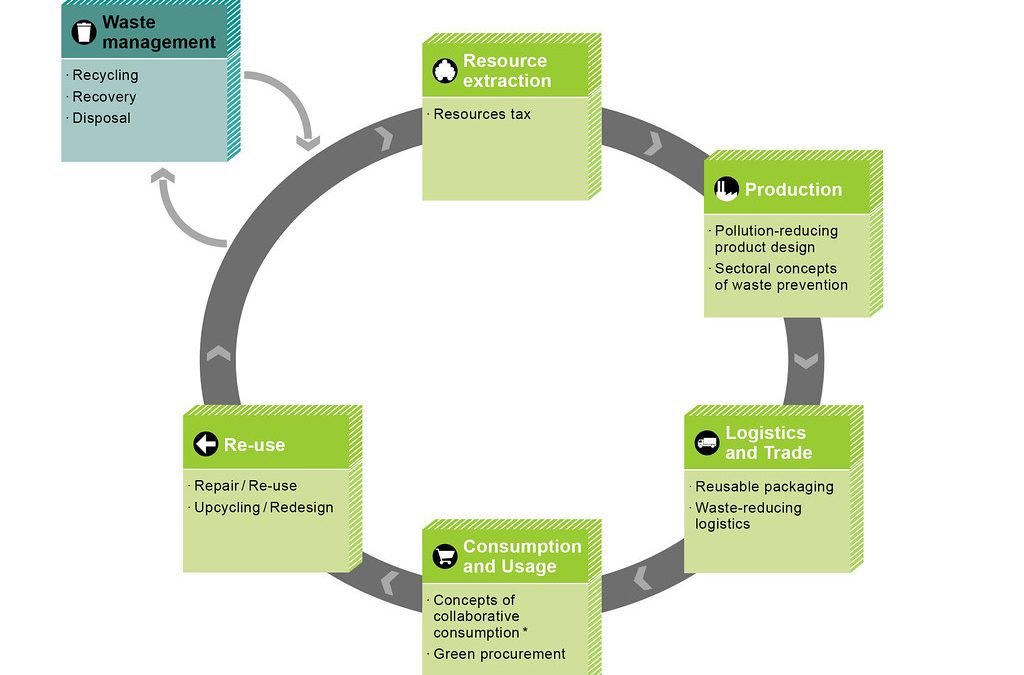Extended Producer Responsibility—Placing Liability Where It Belongs
When product manufacturers develop plans to build and market a particular product, they have one goal in mind–to profit off a product that costs considerably less than what it costs to make the product. Unfortunately, this means many products contain cheap materials such plastics (polyethylene, polypropylene, polystyrene), latex paint and inferior alloys. To combat the horrendous amount of global landfill waste polluting the soil, air and oceans, the international Organization for Economic Cooperation and Development created a policy approach called the Extended Producer Responsibility in 2001.
What is Extended Producer Responsibility?
Extended producer responsibility (EPR) is essentially producer liability for extending the life and recyclable capacity of their product. The principles of EPR revolve around one guiding strategy: that manufacturers and their product designers must take a more responsible approach to the lifecycle, packaging, recycling, and final disposal phases of the products they sell.
One of the first countries to adopt the EPR system was Nigeria. In 2013, the National Environmental Standards and Regulations Enforcement Agency (NESREA) Act began enforcing environmental regulations and laws in Nigeria. Prior to the NESREA act, Nigeria rarely enforced regulations against illegal polluting of soil, air and water due to lack of resources and corruption. Industrial discharge containing pharmaceuticals, steel, iron and petroleum freely contaminated drinking water and agricultural soil with nitrates and sulfates. In addition, unregulated dumping of waste in Nigeria contributed to significant increases in dysentery, typhoid and cholera.
Once established in Nigeria, extended producer responsibility guidelines began incorporating the development of collection and recycling centers in partnership with original equipment manufacturers (OEMs). Although work remains ongoing in Nigeria to reduce waste pollution, the advantages of EPR have already been experienced, such as focusing on environmentally-friendly product designs and promoting public recycling of all waste.
Extended Producer Responsibility in the U.S.
Currently, 23 states have incorporated various forms of EPR strategies into their local and state laws. Those states that have not enacted extended producer liability guidelines lack resources, funds and specialized infrastructure for doing so. However, EPR board members are hopeful that within the next 10 to 20 years, the majority of states will be adhering to EPR approaches and the responsibility that OEMs have to protecting the environment.
Several ways state governments are expected to implement EPR include:
- Incentivizing manufacturers by returning the financial burden of properly disposing of and/or recycling their products. Passing legislation that fines producers for not using more sustainable materials is one method suggested by EPR strategists
- Promoting the use of recyclable materials that extend the length of both landfill waste and electronic waste
- Making manufacturers place warning labels on products indicating they cannot be recycled and/or fall under the category of a “planned obsolescence” product. In other words, labels could inform consumers how long the product is expected to function compared to similar “greener” products with extended lives
As more countries employ EPR strategies, it is the hope of ecyclers like Potomac eCycle and passionate environmentalists that these strategies motivate other countries to further reduce exportation of ewaste. When EPR policies are utilized by the majority of United Nations members, it will be difficult for the rest of the world to ignore the seriousness of global pollution. While many OEMs have already transitioned from using unrecyclable materials to more recyclable materials, or are in the process of doing so, the sheer number of OEMs that fly under the radar of a country’s EPR guidelines is staggering.
Potomac eCycle supports extended producer responsibility and many other environmentally beneficial strategies by offering the best electronics waste recycling in Virginia. We also provide compliant data destruction and pick-up services for larger ewaste bundles. Call today to learn more about our ecycling services.


Recent Comments